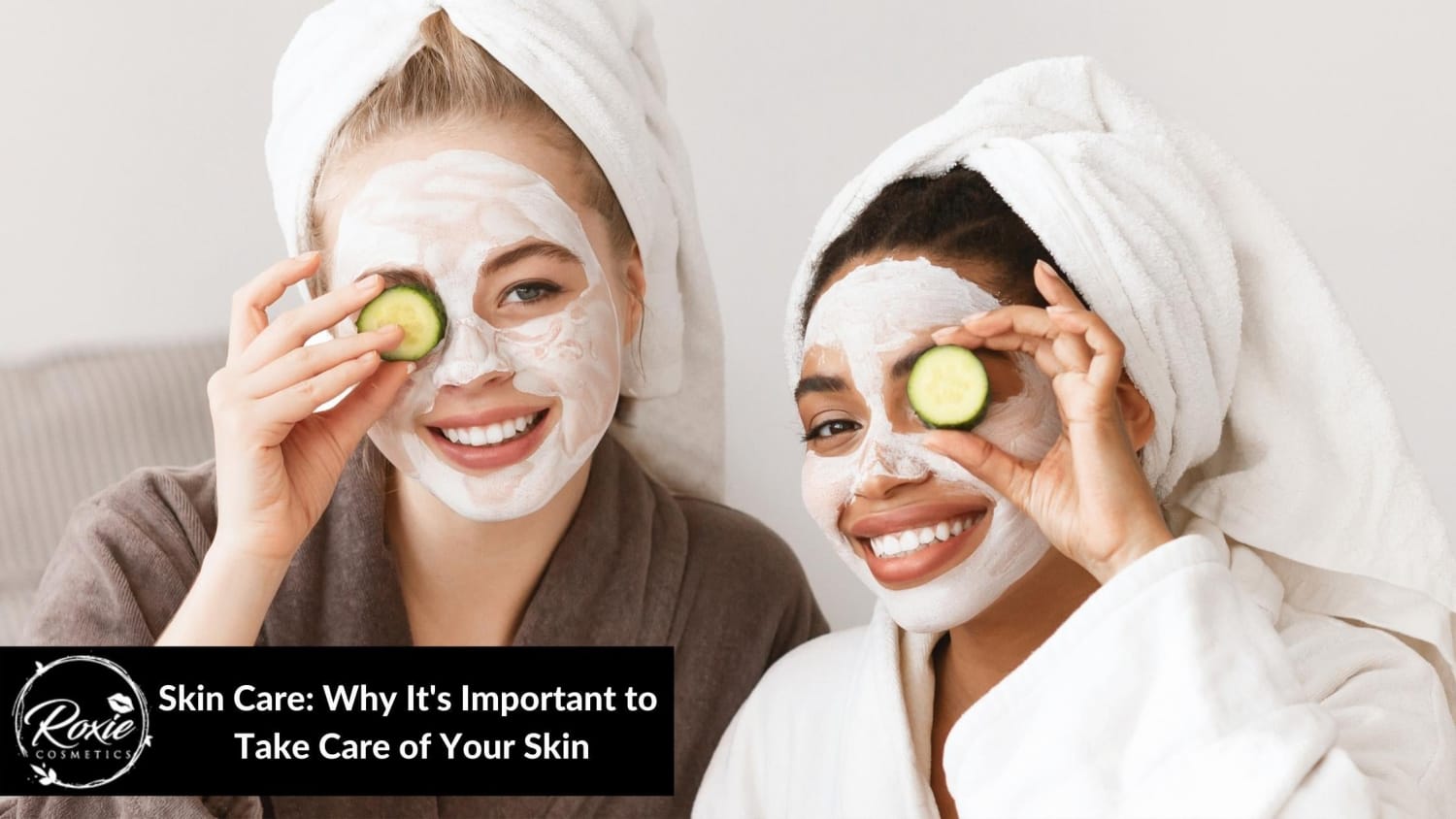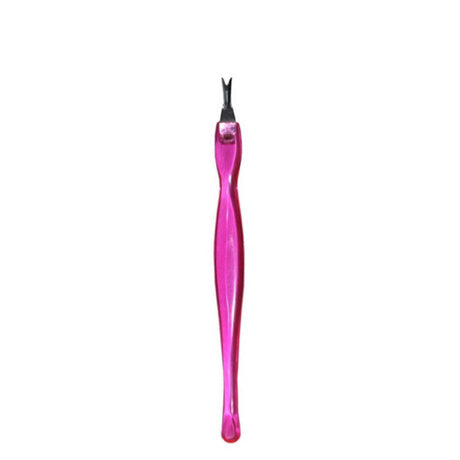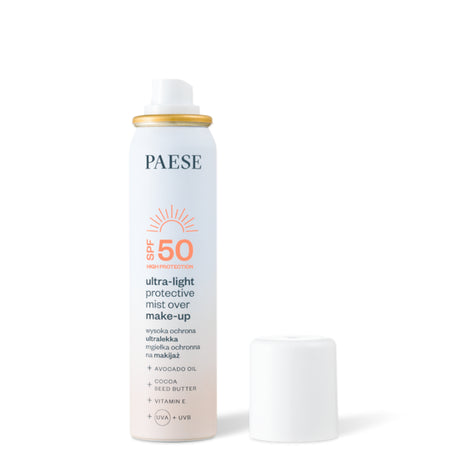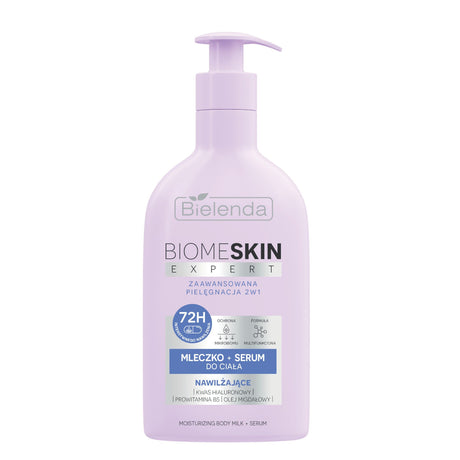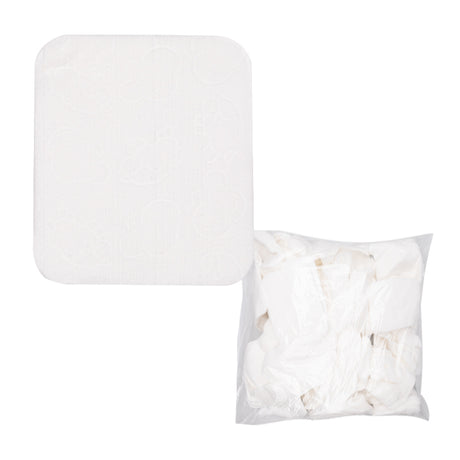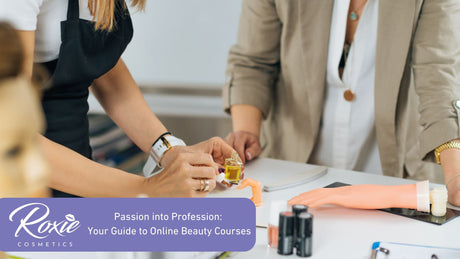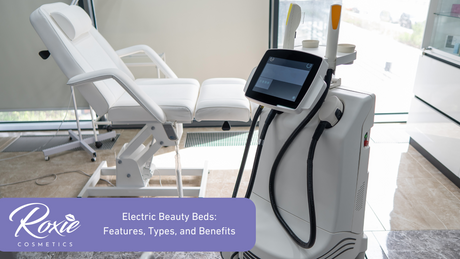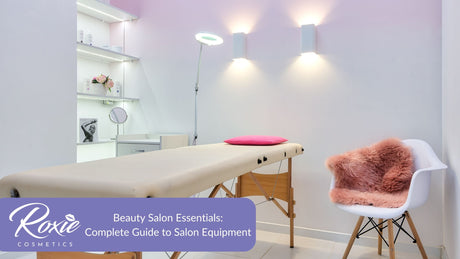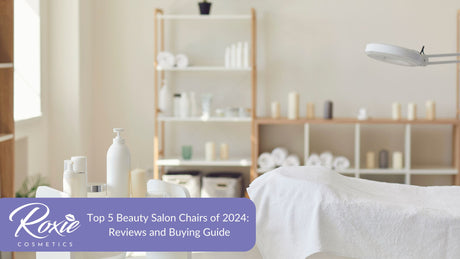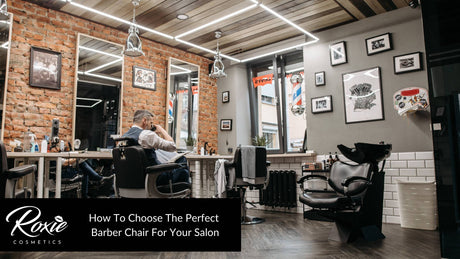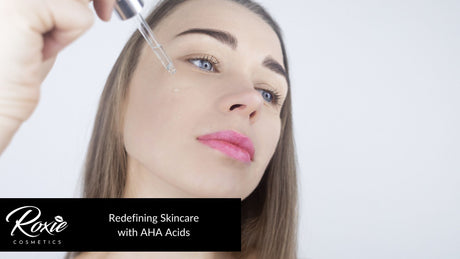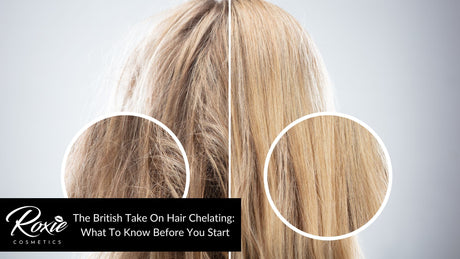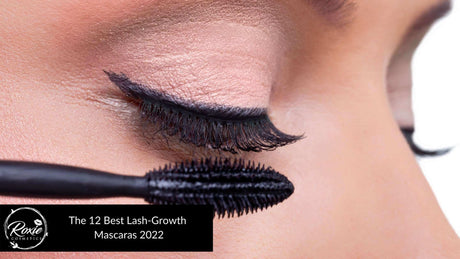Skincare includes a variety of practices that promote skin integrity, improve skin appearance, and ease skin conditions. Skincare also includes proper nutrition, avoiding excessive sun exposure, and using emollients appropriately. Skincare is a regular activity in many settings, such as treating skin that is either too dry or too moist, preventing dermatitis, and treating skin injuries. Skincare is essential because it keeps the skin in good condition. Everyone sheds skin cells throughout the day, so keeping the skin glowing and in good condition is essential. An effective routine can aid in the prevention of acne, the treatment of wrinkles, and the maintenance of healthy skin. Another advantage of maintaining a skincare routine is that the skin will appear more youthful because, as people age, their skin's cells turn over more slowly, making it appear duller and less radiant. Using a high-quality skincare line can aid in the removal of dead skin cells, allowing the body to replace them with newer, more youthful cells. Avoiding skin problems is easier and less expensive than trying to fix them later. Individuals feel much better about themselves and have more self-confidence when their skin looks better.
Skincare should preferably be done twice a day, in the morning and at night. Morning skincare is used to refresh the skin as well as to treat, prepare, and protect it for the day ahead/makeup application. Applying skincare first thing in the morning allows the products to fully absorb. If a person wears makeup, their morning skincare should be light in texture, regardless of their skin type. Even if their skin is dry, opt for light layers of hydrating, nourishing products rather than a single thick layer of heavy cream. They will absorb more quickly into the skin and provide a better foundation for makeup. Evening skincare, on the other hand, is used to remove makeup if it is worn. In either case, it will remove impurities from the day, as well as pollution, dust, dirt, and germs from the skin. It is also used to treat the skin further. Whether it's nourishing dry or mature skin, balancing oily skin, or hydrating dehydrated skin, we've got you covered. While someone is sleeping, it will also prepare the skin for its repair and renewal cycle.
1. Skin Care Is Important for Maintaining the Health of Your Skin.

Skin Care is important for maintaining the health of the skin because the skin protects the body in a variety of ways. The skin acts as a barrier to protect the body from bacterial invasion and other potential environmental hazards that can be harmful to human health. Taking care of one's skin is important for reasons other than appearance. The skin, as the body's largest organ, is critical to everyone's overall health. Therefore, having a well-thought-out skincare routine is essential. It is well worth the time and effort to care for the skin on a regular basis. A good cleanser is the fundamental basis of any effective skincare regimen. If a person cannot remove dirt, oils, and makeup at the end of the day, all the gunk can become trapped in their pores, making them appear larger and increasing the chances of a breakout. Clean pores are healthy pores, so search for a gentle cleanser that removes the day's filth without affecting the skin's pH balance.
2. Skin Care Will Make Your Skin Look Younger.

Some people in their twenties or thirties may not even consider what their skin will look like as they age. That's the allure of having a youthful appearance. As people age, their skin changes, and taking care of one's complexion now with the correct skincare routine and skincare products is the main factor in knowing how to look younger in the future. Individuals may eventually experience a loss of moisture, which can leave their skin feeling dry, or they may experience more visible signs of ageing, such as wrinkles and dark spots. In any case, it's time to implement the following skincare tips for younger-looking skin, incorporating them into a daily regimen that will give people confidence in their complexion while also making them look younger in the long run. Aside from keeping your skin moisturized, using a face serum to address various skincare concerns is essential. Serums can help with a variety of issues, such as dull skin, wrinkles, and dark spots. Consider incorporating one of the following into your daily routine to achieve younger-looking skin.
3. It Is Easier to Prevent Than to Correct.

Even with all the effective skin treatment options, the most fundamental is still the most effective: prevention. Individuals who take better care of their skin now will require fewer skin treatments later. Sun exposure is one of the most common causes of wrinkles, fine lines, and dark spots. Wear sunscreen every day, covering your face, neck, and ears. Certain foods contain essential fatty acids, which can help to prevent saggy skin, blotchiness, and fine lines. Exercise can help to illuminate unwanted toxins, which appear themselves through the skin. Excessive stress can cause hormone spikes, which promote breakouts and aggravate skin conditions like psoriasis. Internal factors, like hormonal imbalances, can have a significant impact on skin integrity. Hormonal challenges on the skin can be reduced by keeping a healthy balanced lifestyle, leaving one with healthy glowing skin. Cleansing is an important step in a skincare routine because it allows active ingredients to penetrate more deeply. Cleansing removes stagnant cells, dirt, and excess oil, allowing new cells to shine. A little prevention is worth a lot of cures, so regardless of age, one can prevent or delay future skin problems by using all the basic skincare products on a daily basis for healthy, glowing skin.
4. Your Self-Assurance Will Improve with Skin Care.

Self-assurance will improve with skincare because self-care can greatly boost one's mindset, manage stress, and improve overall mental health, which is especially important when dealing with skin challenges. Stress can impact the entire body, including the hair, nails, and skin. Since stress is an inevitable part of life, what matters is how a person handles it. Stress triggers a chemical response in the body, making the skin more sensitive and reactive. Stress can also make it more difficult to heal skin problems. When a person is stressed, their sympathetic nervous system produces stress hormones into their body, such as cortisol and adrenaline. Cortisol stimulates oil production in the skin glands, resulting in clogged pores and acne breakouts. Consider products containing vitamin E, vitamin B3, and/or astaxanthin to help the skin cope. Vitamin E has been linked to lower the risks of photoaging and topical vitamin B3 is said to help minimize the appearance of spots and wrinkles. Furthermore, astaxanthin is a breakthrough beauty component that aids in skin repair and fights the signs of skin ageing. These vitamin-based skincare products should be used at least twice a day, in the morning and in the evening.
5. Skin Care is an Important Part of Maintaining a Healthy Lifestyle

Good skincare and a healthy lifestyle can help to postpone natural ageing and prevent a variety of skin problems. Smoking ages one's skin and contributes significantly to wrinkles. Smoking also causes havoc on collagen and elastin, the fibres that give the skin its elasticity and strength. Furthermore, smoking increases the risk of developing squamous cell skin cancer. Giving up smoking is the best way to protect the skin. A healthy diet can assist individuals in looking and feeling their best. Consume a variety of fruits and vegetables, whole grains, and lean proteins. Although the link between diet and acne is unclear, some research suggests that eating a diet high in fish oil or fish oil supplements and low in unhealthy fats and processed, or refined carbohydrates may promote younger-looking skin. Keeping the skin hydrated is made easier by drinking plenty of water. A vitamin-based skincare routine is essential. So, when choosing skin cleansers and moisturizers, look for those that contain astaxanthin, vitamin A, vitamin B3, vitamin C, vitamin E, vitamin B5, and vitamin B6 to achieve healthy, glowing skin. Cleansers and moisturizers, for instance, should always be used at least twice a day, in the morning and evening.
6. Skin Care Gives You the Ability to Protect Your Skin From the Sun

Skincare gives one the ability to protect their skin from the sun by using the correct products. Protecting skin from the sun is one of the most important ways to care for it. Sun exposure over a lifetime can produce wrinkles, age spots, and other skin problems, as well as increase the risk of skin cancer. The best way to prevent sun damage is to stay out of the sun, but most people go outside on a regular basis. Avoid direct sunlight between 10 a.m. and 3 p.m. Ultraviolet rays, which can cause sunburn, are at their peak during this time. Wear protective clothing when going outside, especially if it's going to be an extended period of time during the day. Long sleeves and slacks, as well as a wide-brimmed hat, can help protect the body from the sun's harmful rays. Individuals may also choose to wear UV-filtering sunglasses. Applying sunscreen is one of the most simple ways to prevent millions of skin cancer cases each year. Always wear sunscreen, apply it to the skin on a daily basis, and make it a habit. Choose a sunscreen with a broad spectrum that protects against both UVA and UVB rays. SPF is an abbreviation for sun protection factors. The SPF number shows how well the product will protect people from UVB, or the sun's burning rays. The greater the SPF number, the more protection it can provide. Everyone should wear sunscreen with at least an SPF of 30 if a person has had skin cancer or precancer, using sunscreen with a higher SPF is essential.
7. Self-Care Time Is Carved Out For Skin Care
Self-care time is carved out for skincare because taking care of one's physical health should be part of a well-rounded self-care routine, and skincare is, in some ways, a component of physical self-care. When skincare is associated with genuine self-care, the message is sent that self-care is purely self-indulgent. According to this point of view, if someone is stressed, they should take some time to pamper themselves. But self-care is more than just doing what feels decadent and self-indulgent. Self-care is commonly a discipline that causes a time and effort investment. Face masks and bubble baths can be used as a relaxing routine at the end of a busy day, reducing stress and making people feel better. However, it is critical to recognize that skincare as physical self-care is only a small part of a comprehensive self-care plan. Self-care is more than just taking care of one's skin.
What is the Correct Order to Apply Skincare Routine?
Listed below is the correct step-by-step guide to applying a skincare routine.
- Cleanse Skin First: The first order to apply skincare is to cleanse. Begin by splashing the face with warm water or, if necessary, washing with a gentle face cleanser intended for one's skin type. Mild water-based cleansers might help acne-prone or oily skin types avoid breakouts. No matter how little time a person spends on skincare, they should always rinse their face at least once a day. Those with oily or combination skin may gain from twice-daily washes (morning and night), whereas those with drier skin may only require a nightly wash.
- Apply Toner: After washing the face, use the toner to help smooth, soften, and calm the skin. Toners frequently contain ingredients that replenish and restore nutrients to the skin, as well as ingredients that can reduce redness and dry patches. Most people avoid toners, partly because there is a persistent belief that most toners are harsh and cause irritation. Fortunately, that is no longer the case. While toners do not physically shrink pores, the new generation of toners can act as a delivery mechanism for antioxidants, vitamin-B derivatives, and even toning acids. Furthermore, each type of toner is designed to address a specific skin issue, so it's essential to use the right one for your skin concern.
- Use Antioxidant Serum: Although serum is an optional addition to one's skincare routine, serums contain substances such as antioxidants or retinol that help skin health in a variety of ways, including calming redness and improving texture and firmness. Serums are highly concentrated, nutrient-dense treatments that target specific issues, so keep them as close to the skin as possible. Serums can be oil-based, gel-based, or liquid-based. Antioxidant serums, retinol, and vitamin C are some of the most commonly used serums. Apply before applying the moisturizer. Massage oil-based serums into the skin, while liquid and gel serums can be patted on.
- Moisturize: Moisturizers, like cleansers, are for everyone and should be used every time a person washes their face. Moisturizers keep the skin hydrated and smooth by preventing it from drying out. Moisturizers work best when applied after toner and while the skin is still slightly damp, so the sooner one finishes their serum and treatment, the sooner they can lock in much-needed hydration with their moisturizer. Every skin type requires a daily dose of moisturizer to stay hydrated, soft, and supple.
- Apply Sunscreen: The final step in one's daytime skincare routine should be sunscreen. Put on sunscreen every day, even if it's cloudy or cold outside, and even if dressed warmly. Sunscreen should be reapplied every two hours if exposed. Make sure the sunscreen shields from both UVA and UVB rays. If skin cancer and sun damage aren't enough to persuade people, consider that UV exposure is the leading cause of wrinkles, uneven skin tone, loss of firmness, and ageing signs.
What Are Some Good Skin Care Products?
Listed below are some of the following good skincare products.
- Cleanser: A facial cleanser is a skincare product that is used to remove makeup, dead skin cells, oil, dirt, and other types of contaminants from the skin, thereby keeping pores clear and preventing skin conditions like acne. The cleanser helps to unclog pores and exfoliate the top skin cells. Cleansers' primary function is to cleanse the skin without removing the top layer. Facial cleansers come in a variety of forms, and it's important to know what works best for one's skin type and lifestyle. Cleansers can range from "micellar waters, foaming gels, creams, balms, oils, and wipes."
- Toner: Face toner is a well-kept skincare secret. Face toners are liquids that are water-based and may contain skin-soothing ingredients such as eucalyptus, peppermint, and aloe. People can frequently find formulas designed specifically for their skin type. The purpose of a toner is to gently freshen up the skin without stripping it of its natural moisture. This ensures that the toner will not irritate sensitive skin or cause excessive dryness. Toner also prepares the skin to absorb one post-cleansing moisturizer as well as any other skin treatments they may use.
- Moisturizer: A face moisturizer is a lotion, cream emulsion, ointment, or balm that contains emollients that keep skin hydrated. Moisturizers hydrate the skin's outer layer. Their primary skin advantage is that they seal in moisture and nutrients while protecting the skin from environmental irritants.
- Sunscreen: Sunscreens are used to protect the skin from the sun's ultraviolet rays. Sunscreens aid in the prevention of sunburn as well as premature ageing symptoms such as wrinkles and leathery skin. Sunscreens also reduce the risk of skin cancer and sunburn-like skin irritation caused by certain medications.
- Serum: Face serums are lightweight moisturizers with a higher concentration of active ingredients such as hyaluronic acid, glycolic acid, and vitamin C than standard facial moisturizers. Face serums, which are well-known for their efficiency, are frequently used to address specific skincare issues, such as wrinkles. Serums are typically thinner than moisturizers, making them ideal for layering, and they can be found in a variety of formulas, including gels, oils, and light creams.
- Mask: Face masks are excellent additions to any skincare routine for addressing specific skincare issues. Masks can moisturize the skin, remove excess oils, and improve the appearance of pores while also offering a relaxing, spa-like experience at home.
- Exfoliator: The process of removing dead skin cells from the top layer of the skin is known as exfoliation. People can exfoliate their faces with natural products or items such as sugar, oatmeal, or sponges. People may also choose to exfoliate their skin because it can provide benefits such as improved appearance and increased circulation.
- Lip Balms: Lip balm is a wax-like substance that is applied to the lips to moisturize and relieve pain caused by chapped or dry lips. Lips are vulnerable because of their thin skin and usually exhibit signs of dryness before other areas of the skin. Lip balm protects lips from dry air, wind, and freezing temperatures.
- Spot Treatments: Spot treatments are frequently used at the conclusion of a skincare routine. Spot treatments are useful for treating more specific skin issues such as acne scars, pimples, and blemishes.
What Benefits do Quality Skin Care Products Provide?
Good skincare products can help enhance the appearance and texture of one's skin at any age, whether they are fighting breakouts or attempting to regain a more youthful, yet natural, look. The quality of a person's skincare routine is only as good as the products they use. High-quality products are safe and effective, and they may be available in special formulations for sensitive skin and other issues. Quality skin care products work on improving the texture and appearance of the skin while also protecting it from the effects of sunlight, toxins, and other problems that can be harmful to one's health. Selecting products from a legitimate brand with a reputable line of products can be beneficial, because each component may be designed to function in combination with the others. Individuals can also be more confident in the quality of the products and may better be able to predict how their skin will respond to trying a new product in the same line. Low-quality skincare products can clog pores, increase redness, and cause breakouts, having a negative effect on the skin.
Should I Do Skincare every day?
Yes, including a skincare routine as part of one's self-care ritual is recommended for everyone, regardless of age or skin type. A good skincare routine should clean and maintain healthy skin, protect against environmental forces, and repair any existing damage. A morning skincare routine should ideally include cosmetics that provide protection and prevention, whereas an evening skincare routine should concentrate on cleansing and repair. Those who wash their faces in the morning and at night are often more likely to make healthy decisions throughout the day. Skincare can be combined with comprehensive oral care and hair care regimen. These things can help motivate people to eat healthier and exercise more. Everything adds up to a happier, healthier one.
Who should Do Skin Care?
For skincare, there is no age or specific gender at which a person does not require a daily routine. However, unless you had to put a time limit on it, it's likely that the earlier a person starts, the better. Individuals could start with the basics around the age of 12, using a gentle cleanser, moisturizer, and sunscreen. If a person has acne or pimples during puberty, he/she may need to switch to an oil-control cleanser. She can also use salicylic acid spot treatments to address specific issues. Individuals should be in the habit of a routine by their early twenties, and they can raise the stakes by incorporating anti-ageing products. The precautions they take in their twenties will help their skin age gracefully and delay the appearance of more visible signs of ageing. Consider including antioxidant serums and creams on the list by the late twenties to help combat ageing skin and a decrease in collagen production. As people reach their 30s, they can begin to incorporate retinol and retinoid products into their anti-ageing skincare routine. Together with antioxidants, these help the skin fight fine lines and wrinkles. Individuals can then continue to use this skincare routine into their 40s and beyond, though they may want to change some products in their skincare routine as their skin matures.

